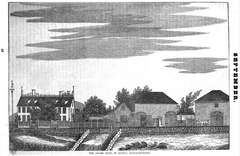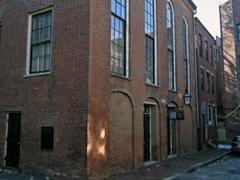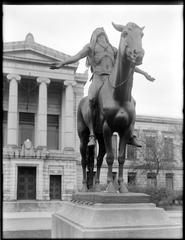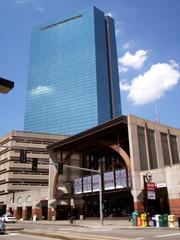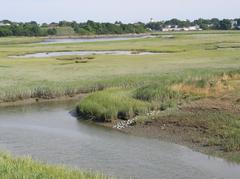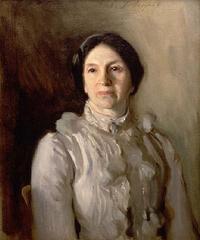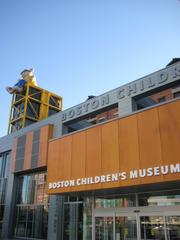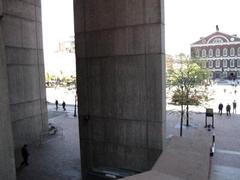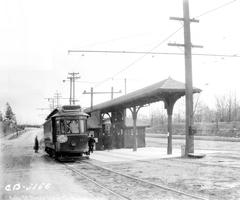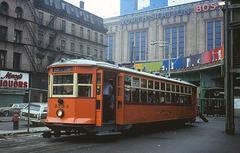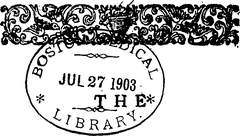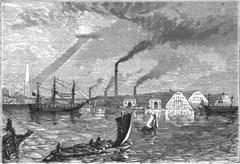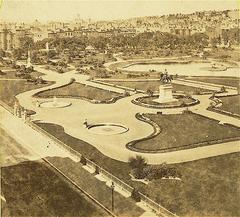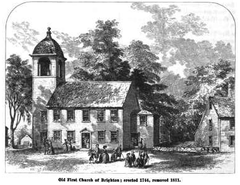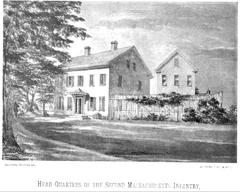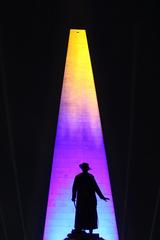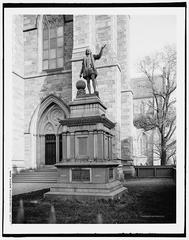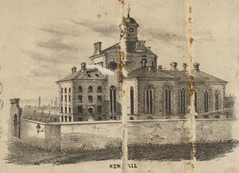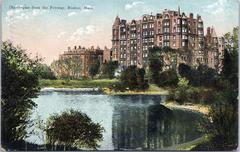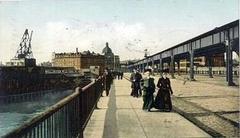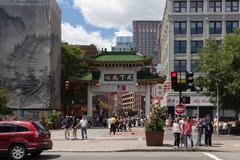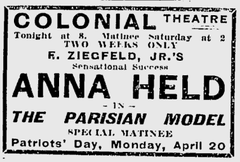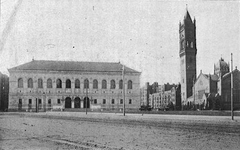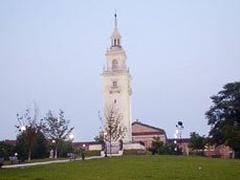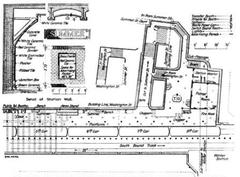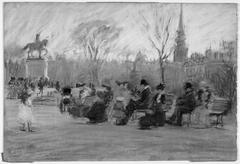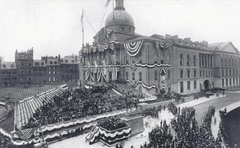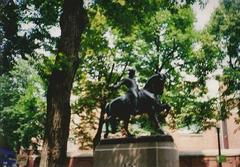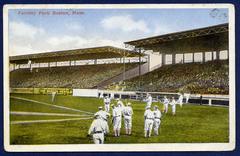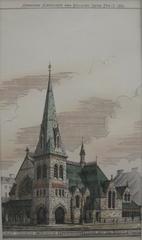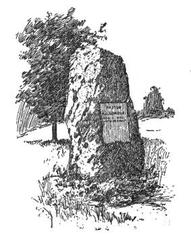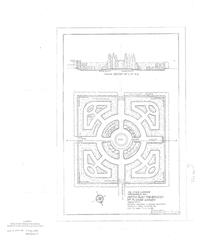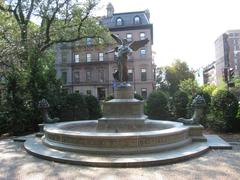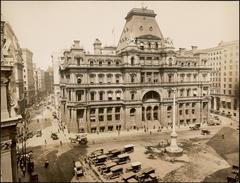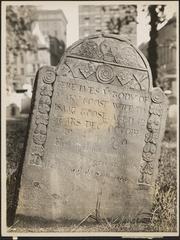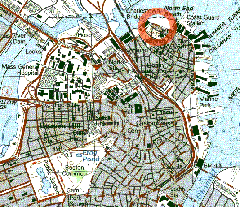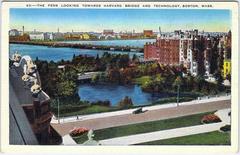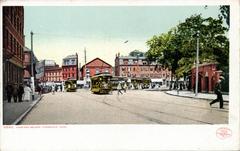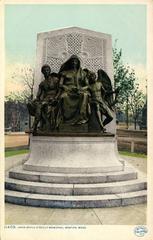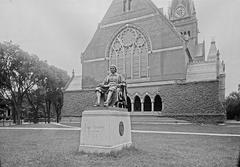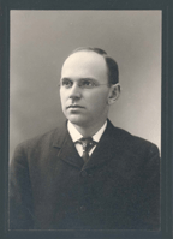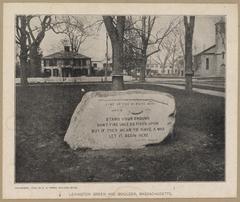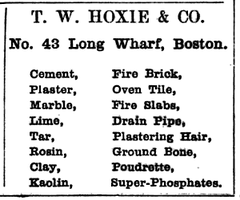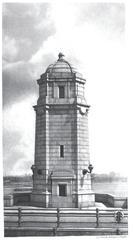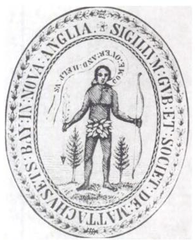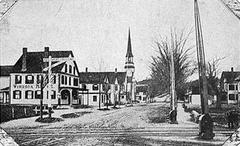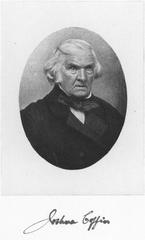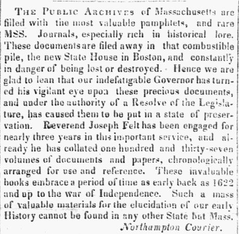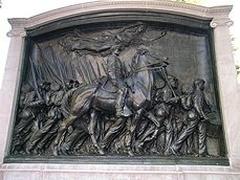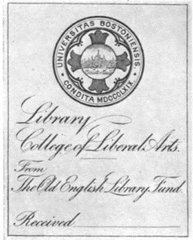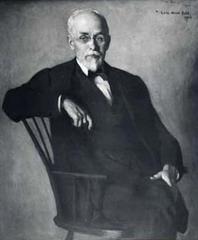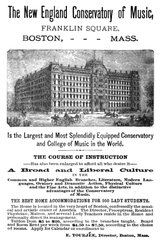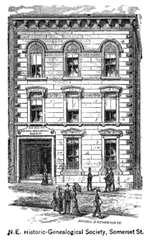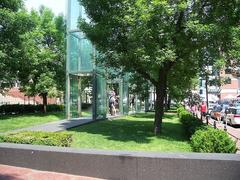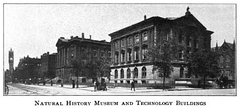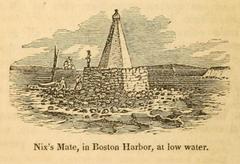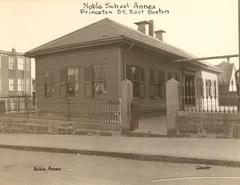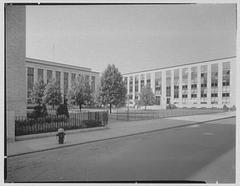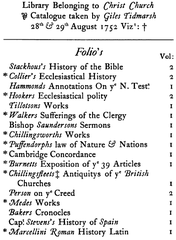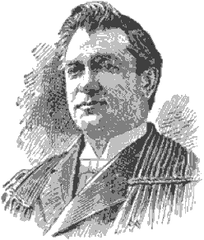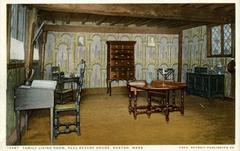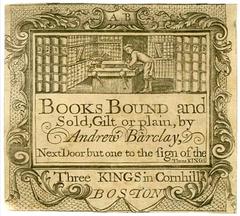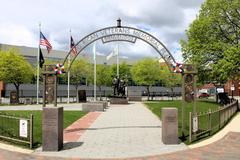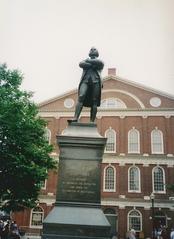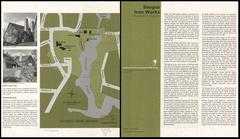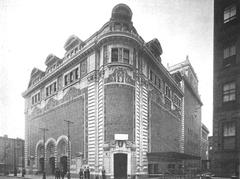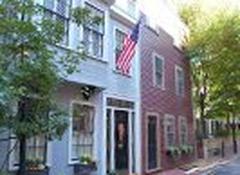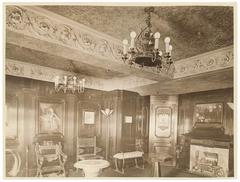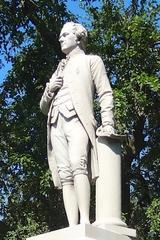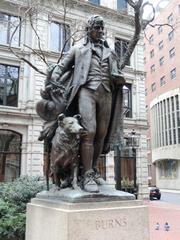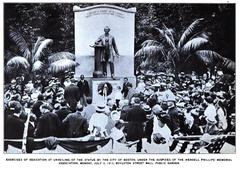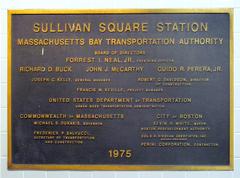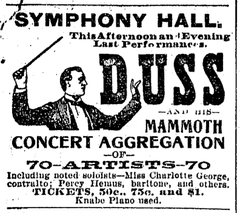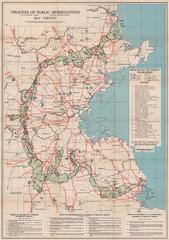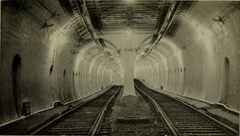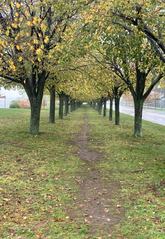Emancipation in Boston: Visiting Hours, Tickets, and Historical Sites Guide
Date: 04/07/2025
Introduction: Boston’s Emancipation Legacy
Boston’s pivotal role in the history of emancipation and abolitionism in the United States is deeply woven into the city’s fabric. As the first state to constitutionally abolish slavery in 1783, Massachusetts—particularly Boston—became a beacon for freedom seekers and a hotbed of abolitionist activity. The city’s African American heritage thrives in historic landmarks like the African Meeting House, the nation’s oldest surviving Black church, and along the Black Heritage Trail, where stories of resilience, activism, and the pursuit of justice come alive.
Boston’s evolving relationship with emancipation is also reflected in its monuments and public art. The Emancipation Memorial, once a prominent Park Square feature, commemorated Abraham Lincoln’s role in ending slavery but drew controversy for its depiction of Black agency. Its removal in 2020, following robust community dialogue, underscores the city’s ongoing efforts to address historical narratives with nuance and inclusivity.
Today, visitors can delve into Boston’s emancipation history through museums, heritage trails, commemorative events, and thoughtful engagement with sites that honor generations of activism and progress. This comprehensive guide offers essential information—visiting hours, ticketing, accessibility, travel tips, and more—to help you explore Boston’s emancipation heritage. For up-to-date details, visit the Museum of African American History, the National Park Service Black Heritage Trail, and the Boston Preservation Alliance.
Embark on a journey through Boston’s historic sites to connect with the stories and legacies that continue to shape the city and the nation (WBUR Juneteenth and Boston Abolitionism).
Table of Contents
- Early Black Community and Roots of Emancipation in Boston
- Legal Abolition of Slavery in Massachusetts
- Boston as a Hub of Abolitionism
- Emancipation Celebrations and Public Memory
- Frederick Douglass, the Emancipation Proclamation, and the 54th Regiment
- Key Emancipation Historical Sites in Boston: Hours and Tickets
- Practical Visitor Tips
- Emancipation Memorial: History, Controversy, and Legacy
- Emancipation in Boston Today: Sites, Events, and Commemorations
- Visiting the Emancipation Group Statue: Current Status and Engagement
- Frequently Asked Questions (FAQs)
- Summary and Final Tips
- References
Boston’s Emancipation Milestones: History and Cultural Significance
Early Black Community and Roots of Emancipation
Boston’s Black community took root in the late 18th century, building institutions and advocating for rights despite slavery’s persistence elsewhere. The African Meeting House, founded in 1806, became a nucleus for organizing, education, and worship, laying the groundwork for Massachusetts’ legal abolition of slavery.
Legal Abolition of Slavery in Massachusetts
In 1783, Massachusetts became the first state to abolish slavery via its constitution, influenced by legal cases and the activism of Black residents and allies. Despite this legal milestone, Boston’s relationship with slavery and the slave trade remained complex, with economic ties persisting even after emancipation.
Boston as a Hub of Abolitionism
Throughout the 19th century, Boston’s African American community remained small but influential, driving antislavery activism. The city was home to pivotal publications like The Liberator and organizations such as the New England Anti-Slavery Society, founded at the African Meeting House.
Emancipation Celebrations and Public Memory
Before Juneteenth, Boston’s Black community commemorated West Indian Emancipation Day on August 1, marking the 1834 abolition of slavery in the British West Indies. These public celebrations—parades, rallies, and gatherings—cemented a tradition of activism and remembrance that endures today.
Frederick Douglass, the Emancipation Proclamation, and the 54th Regiment
Boston played a central role in 1863’s Emancipation Proclamation celebrations at Tremont Temple, led by Frederick Douglass. The city also recruited the 54th Massachusetts Regiment, the North’s first Black Union Army regiment, whose valor is honored on the Boston Common.
Key Emancipation Historical Sites in Boston: Visiting Hours and Ticket Information
African Meeting House
- Location: 46 Joy Street, Beacon Hill
- Significance: Oldest surviving Black church building in the U.S. and a National Historic Landmark.
- Hours: Tuesday–Saturday, 10:00 AM–4:00 PM
- Tickets: $10 for adults (Museum of African American History admission); discounts for seniors/students. Purchase online or on-site.
- Accessibility: Wheelchair accessible.
- Highlights: Guided tours and photo opportunities of historic architecture.
- Travel Tip: Take MBTA Red Line to Charles/MGH. Spring and fall offer pleasant visiting conditions.
Black Heritage Trail
- Description: 1.6-mile self-guided walk through Beacon Hill, highlighting 14 sites integral to Black history and emancipation.
- Tours: Ranger-led tours available seasonally; self-guided with map brochures and interpretive signs.
- Accessibility: Most portions accessible; consult National Park Service for details.
- Tip: Download the NPS app for interactive maps and audio guides.
Tremont Temple
- Location: 88 Tremont Street
- Significance: Historic site for abolitionist meetings and Emancipation Proclamation celebrations; still an active church.
- Hours: Sundays, 10:30 AM; Wednesdays, 7:00 PM; other times by appointment.
- Tours: Group tours by appointment.
- Accessibility: Fully accessible.
Robert Gould Shaw and Massachusetts 54th Regiment Memorial
- Location: Boston Common, across from the State House
- Hours: Open 24/7
- Tickets: Free
- Accessibility: Fully accessible
Practical Visitor Tips
- Getting Around: The MBTA offers convenient access; Charles/MGH is nearest Beacon Hill.
- Parking: Limited; use public transport or downtown garages.
- Guided Tours: Enhance your visit with ranger or historian-led walks.
- Photography: Permitted at all sites; best light in the morning.
Emancipation Memorial in Boston: History, Controversy, and Visitor Guide
Artistic Origins and Design
The Emancipation Memorial, also known as the Emancipation Group, was a bronze replica of the original 1876 monument in Washington, D.C., designed by Thomas Ball (Wikipedia). Donated by Moses Kimball, the statue depicted Abraham Lincoln standing over a kneeling, recently freed Black man—modeled after Archer Alexander. While symbolizing liberation, the statue’s imagery generated criticism for its portrayal of Black passivity (AP News; Historic New England).
Historical Context and Funding
The original D.C. monument was funded by donations from formerly enslaved people (Lost New England), while Boston’s copy was a philanthropic gesture by Kimball. The Boston dedication in 1879 was intended to honor Lincoln and emancipation, but the statue’s symbolism soon became a topic of debate.
Evolving Public Perception and Criticism
Early critics, including Frederick Douglass, felt the statue’s design failed to reflect Black agency (Lost New England). By the late 20th and early 21st centuries, many viewed the kneeling figure as problematic, reinforcing narratives of white saviorism while minimizing the contributions of Black Americans to their own liberation (Boston.gov; History News Network).
The 2020 Removal: Public Debate and Decision
In 2020, amid national conversations on racial justice, a petition led by artist Tory Bullock called for the statue’s removal (Wikipedia). After extensive public engagement, the Boston Art Commission voted unanimously in June 2020 to remove the statue, acknowledging that it perpetuated harmful stereotypes and failed to adequately honor Black contributions to emancipation (Boston.gov; AP News; David J. Kent). The statue was moved to storage, with future public display to include educational context.
Cultural Significance and Ongoing Dialogue
The removal of the Emancipation Memorial has sparked ongoing conversations about how Boston and the nation commemorate emancipation and Black history. It has led to renewed focus on honoring Black abolitionists and incorporating community engagement in public art decisions (Boston.gov; History News Network).
Emancipation in Boston Today: Sites, Events, and Commemorations
Key Sites and Visiting Information
- Black Heritage Trail (National Park Service): 1.6-mile route, 14 historic sites. Ranger-led and self-guided tours available, free or low-cost.
- Museum of African American History (Museum of African American History): Tuesday–Sunday, 10 AM–5 PM. Tickets required; accessible.
- Robert Gould Shaw/54th Regiment Memorial: Open-air site; free.
- Tremont Temple: Public services and events; tours by appointment.
Annual Events and Commemorations
- Juneteenth (Boston.gov): Flag-raising at City Hall Plaza, cultural events at Strand Theatre and local museums.
- Freedom Rising Symposium: Lectures and tours hosted by Harvard and the National Park Service.
- African American Festival: Celebrates Black culture, often in summer.
- Patriots’ Day and July 4th: Citywide events with abolitionist themes.
Visiting the Emancipation Group Statue: Location and Current Status
- Status: Not on public display; removed from Park Square in December 2020 (Boston Preservation Alliance).
- Future Plans: Possible museum display with educational context; updates at Boston Preservation Alliance and Boston Art Commission.
How to Engage with Its Legacy
- Local Museums and Forums: Check for future exhibitions or discussions.
- Related Sites: Visit the Harriet Tubman Memorial (Wander Women Project), Black Heritage Trail, and Boston Common.
- Virtual Tours: Available through museum and city websites.
Practical Travel Tips
- Best Time to Visit: May–October; Juneteenth and summer festivals offer vibrant experiences (Travellers Worldwide; Rove.me).
- Getting Around: Use MBTA for easy access; wear comfortable shoes for historic districts.
- Accessibility: Most major sites are accessible; check ahead for historic buildings.
- Family-Friendly: Many museum programs and events are suitable for children.
- Luggage Storage: Available in tourist areas.
Visual and Interactive Resources
- Images and Virtual Tours: Access via National Park Service and Museum of African American History.
- Guided and Self-Guided Resources: Download maps, audio guides, and explore interactive content online.
Frequently Asked Questions (FAQs)
Q: What are the visiting hours for the African Meeting House?
A: Tuesday–Saturday, 10:00 AM–4:00 PM.
Q: Are tickets required for the African Meeting House?
A: Yes, included with Museum of African American History admission.
Q: Is the Black Heritage Trail accessible?
A: Most of the trail is accessible; some historic buildings have limitations.
Q: Can I visit the Emancipation Group statue now?
A: No, it is in storage and not publicly viewable.
Q: Are there guided tours for these sites?
A: Yes, ranger-led and museum tours are available seasonally.
Q: When are Juneteenth events held?
A: Annually in mid-late June, with major events around June 17–19.
Q: Where can I learn more about the statue’s history?
A: Visit the Boston Preservation Alliance and Boston Art Commission.
Summary and Final Tips
Boston’s emancipation heritage is rich and multifaceted, offering profound lessons through its historic landmarks, commemorative events, and ongoing community dialogue. The city’s approach to remembering emancipation—through preservation, education, and honest reflection—continues to evolve, honoring both the struggles and triumphs of its Black residents.
Visitors can immerse themselves in this history by exploring the African Meeting House, walking the Black Heritage Trail, participating in Juneteenth celebrations, and engaging with museum programs. Stay informed on the latest events and exhibits by utilizing digital tools like the Audiala app and consulting official resources (Boston Art Commission; National Park Service). Experience Boston’s legacy of emancipation as both an educational journey and a call to advance justice and inclusion.
References
- Museum of African American History
- National Park Service - Black Heritage Trail
- WBUR Juneteenth and Boston Abolitionism
- Boston Preservation Alliance Emancipation Group
- Boston Art Commission
- Historic New England Reckoning with Boston’s Emancipation Monument
- AP News on Emancipation Memorial Removal
- Lost New England Emancipation Memorial
- PBS NewsHour on Statue Removal and Representation
